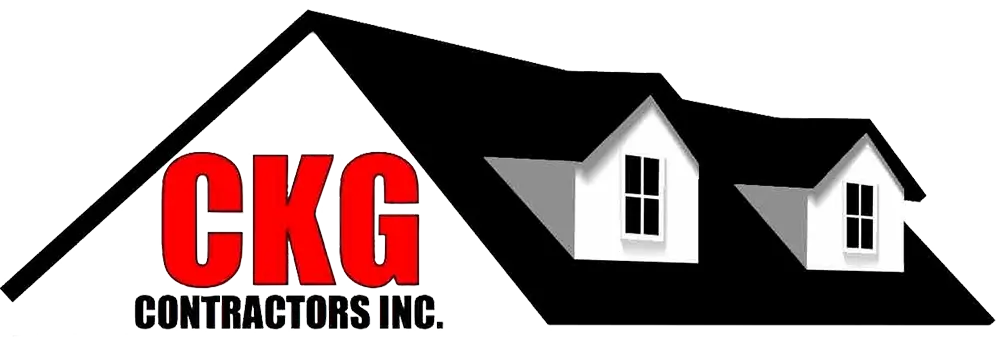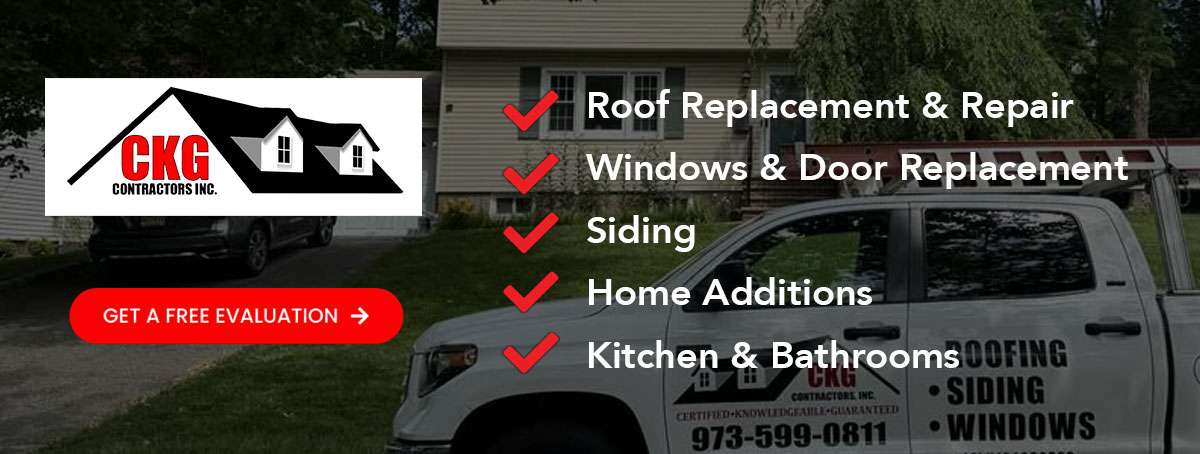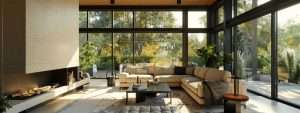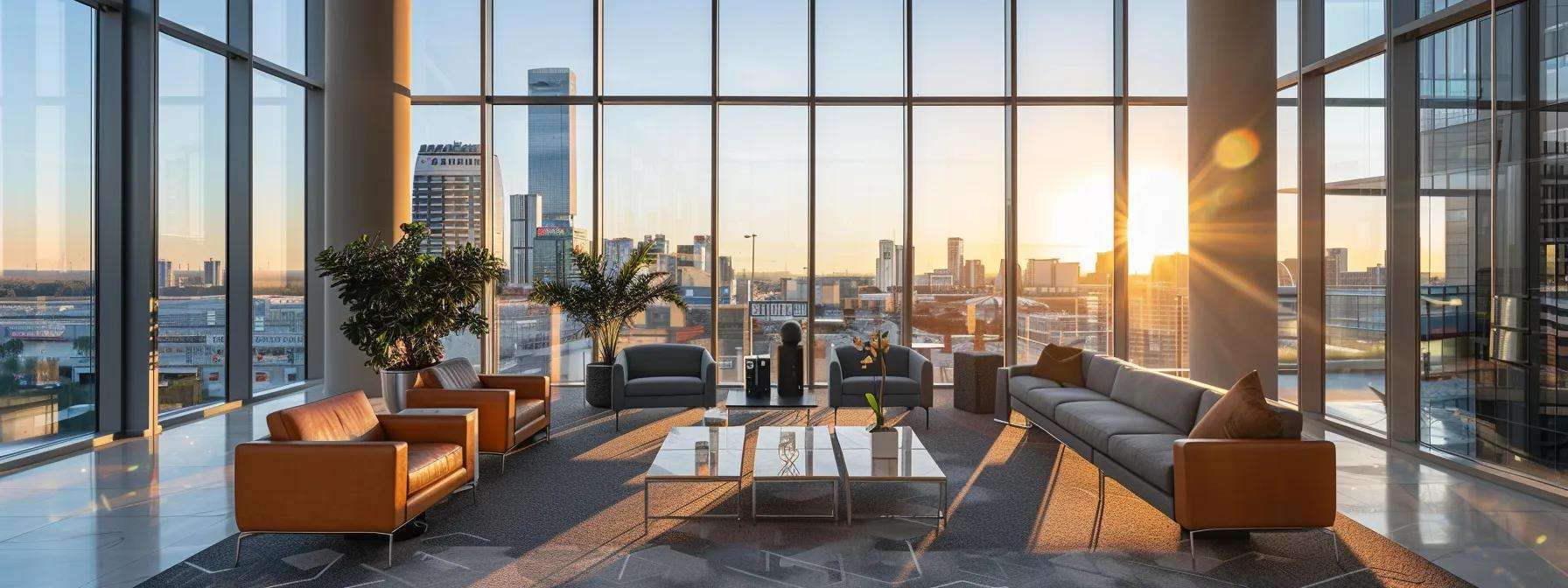
Table Of Contents:
- Introduction
- Why Is UV-Blocking Glass Essential for New Jersey Homes in Summer?
- What Types of UV-Blocking Glass Are Best for Window Replacement in New Jersey?
- How to Choose the Right UV-Blocking Glass for Your Home or Commercial Property?
- How Does UV-Blocking Glass Help Reduce Cooling Costs During New Jersey Summers?
- What Are Common Questions About UV-Blocking Windows in New Jersey?
- Where Can You Find Reliable Window Replacement Services Specializing in UV-Blocking Glass in New Jersey?
- How to Maintain and Care for UV-Blocking Windows to Maximize Summer Heat Protection?
- Frequently Asked Questions
Introduction
At CKG Contractors, Inc., we understand that selecting the right windows not only boosts your home’s aesthetic appeal but also plays a key role in energy efficiency and long-term protection from damaging elements. In New Jersey, where summer heat can be intense and persistent, investing in UV-blocking glass for your window replacement projects is critical. Homeowners and commercial property owners alike need solutions that reduce cooling costs, protect prized furnishings from sun damage, and enhance indoor comfort. This article explains why UV-blocking glass is essential for New Jersey homes during summer, outlines the various types available, discusses how to choose the right option based on durability and cost-effectiveness, and describes how professional installation and maintenance ensure optimal performance. We will also illustrate how these advanced window replacement solutions contribute to lower energy bills and improved indoor comfort while answering frequently asked questions about UV-blocking windows. With over two decades of experience in home improvement, CKG Contractors is here to help you navigate window replacement with a seamless, reliable process and a product that truly performs.
As you read on, you will understand the benefits of UV-blocking glass in protecting your home from summer heat and harmful UV rays while increasing energy efficiency and reducing maintenance costs. Our discussion is rooted in scientific details, real-world examples, and industry best practices. Whether you’re looking for new jersey windows, vinyl replacement windows, or custom replacement solutions, our guide walks you through factors to consider during window selection and the advantages of professional installation services in New Jersey. Let’s begin by exploring why UV-blocking glass is essential for homes in our region during the sweltering summer months.
Why Is UV-Blocking Glass Essential for New Jersey Homes in Summer?
New Jersey summers are characterized by high temperatures, intense sunlight, and significant heat gain through windows, leading to elevated indoor temperatures and increased cooling costs. UV-blocking glass reduces the amount of radiant heat entering your home by significantly blocking ultraviolet rays that not only cause skin damage but also heat up interior spaces rapidly.
In addition, UV-blocking glass minimizes the fading and deterioration of interior furnishings, fabrics, and artwork by reducing the impact of harmful UV radiation. Homeowners who choose UV protection not only preserve their investments but also lower energy bills, as studies suggest these windows can cut cooling costs by up to 20% in areas with prolonged heat exposure.
Installing UV-blocking windows improves overall energy efficiency by creating a thermal barrier that stabilizes indoor temperatures and reduces reliance on HVAC systems. This results in enhanced indoor comfort and long-term savings, making UV-blocking glass a critical addition to any energy-efficient home improvement project in New Jersey.
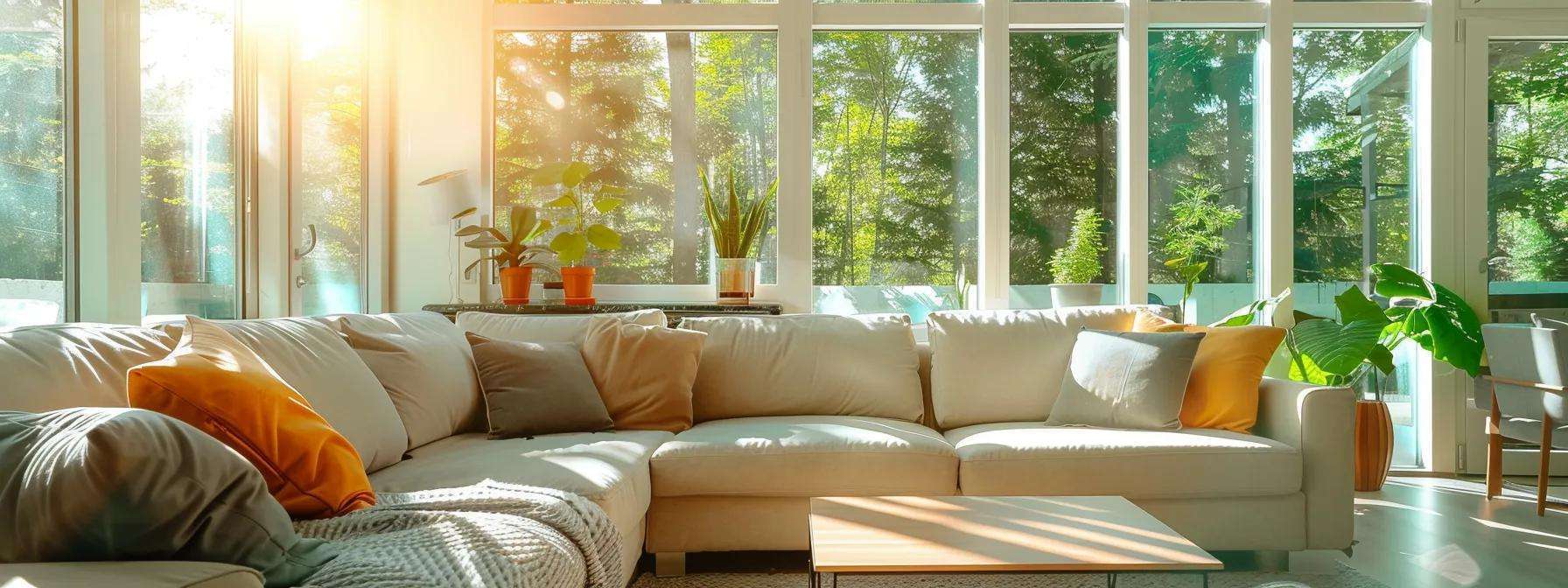
How Does Summer Heat Affect Your Home and Windows?
Summer heat impacts your home’s microclimate and window performance. High temperatures cause windows to act like magnifying glasses, allowing as much as 70% of solar energy to penetrate, which forces air conditioning systems to overwork and increases utility bills. Excessive heat also creates thermal stress on window frames and seals, potentially leading to warping and premature failure.
Additionally, UV rays accelerate the aging of interior furnishings by breaking down chemical bonds in fabrics, artwork, and flooring. Upgrading to energy-efficient, UV-protective windows can reduce overall heat gain by 15–20%, helping to maintain consistent indoor temperatures and easing the burden on cooling systems.
What Are the Benefits of UV-Blocking Glass Against Summer Heat?
UV-blocking glass dramatically reduces heat gain, meaning less energy is needed for indoor temperature control. Homes with such windows experience solar heat gain reductions of 30–40%, resulting in lower cooling costs and a more consistent indoor climate. Sophisticated coatings reflect or absorb ultraviolet wavelengths before they penetrate the home.
In addition to energy savings, UV protection preserves home interiors by preventing aggressive fading of fabrics, artwork, and structural materials, thereby maintaining décor vibrancy and property value. The benefits extend to improved health and indoor comfort as well—by reducing harmful UV exposure without compromising natural light, these windows decrease strain on HVAC systems and lower the overall carbon footprint.
How Does UV Protection Improve Energy Efficiency in Window Replacement?
Modern UV-blocking windows feature special coatings that reduce solar heat transfer, cutting cooling energy use by up to 20% in warmer climates. By stabilizing indoor temperatures, these windows reduce the load on HVAC systems and lower utility bills, while also contributing to a decreased environmental footprint.
Energy-efficient window replacements that integrate UV protection help maintain a consistent indoor climate by complementing advanced insulation methods. Properly installed, these windows reduce air leakage and minimize temperature fluctuations, ensuring that homeowners benefit from both immediate savings and long-term reliability.
What Types of UV-Blocking Glass Are Best for Window Replacement in New Jersey?
A variety of UV-blocking glass options, each engineered for specific performance, durability, and cost needs, are available in New Jersey. It is essential to choose glass that not only provides robust UV protection but also complements advanced window construction methods like double-pane systems and low-emissivity coatings. In this section, we compare double-pane, Low-E, and vinyl windows with integrated UV protection and assess leading brands based on their technological advancement and overall performance.
What Are the Differences Between Double-Pane, Low-E, and Vinyl Windows With UV Protection?
Double-pane windows consist of two glass layers separated by an insulating air or gas-filled space, significantly reducing UV penetration while enhancing energy efficiency and lowering cooling costs.
Low-E glass utilizes a microscopically thin metallic coating that reflects infrared energy and absorbs UV rays. This dual-purpose coating conserves energy and protects interior furnishings while maintaining high optical clarity.
Vinyl windows, often coupled with UV-protective glass, provide a cost-effective, durable option with reduced thermal bridging and low maintenance. Although they may offer slightly lower insulation than premium systems, modern vinyl windows still deliver reliable UV protection and energy savings.
To illustrate these differences:
How Do Window Brands Compare in UV-Blocking Technology?
Leading window manufacturers like Andersen, Pella, and several regional New Jersey companies incorporate advanced UV-blocking technology into their products. Andersen windows, known for exceptional craftsmanship and Low-E coatings, are designed to minimize energy transfer. Pella windows offer customizable, high-performance solutions by combining double-pane construction with UV protection.
Reputable brands support their products with detailed performance data, Energy Star ratings, and extensive warranties, sometimes up to 30 years. These assurances provide homeowners with long-term reliability and reduced replacement frequency despite potential higher upfront costs.
Which UV-Blocking Glass Options Are Most Durable and Cost-Effective?
Low-E glass in double-pane systems is widely recognized for its durability and robust UV protection, making it a preferred long-term investment despite a higher initial cost. Conversely, vinyl windows with UV-protective glazing offer a budget-friendly alternative with improved performance in recent years.
Other factors to consider include warranty length and installation costs. Premium products often come with warranties of 20 years or more, and professional installation is critical to maximize performance and efficiency, ensuring overall lifecycle cost-effectiveness.
How to Choose the Right UV-Blocking Glass for Your Home or Commercial Property?
Selecting UV-blocking glass for your window replacement in New Jersey involves a careful evaluation of your property’s energy efficiency needs, aesthetic preferences, and long-term performance expectations. Based on our experience at CKG Contractors, the most successful projects are those where every aspect—from material quality to professional installation—is meticulously planned.
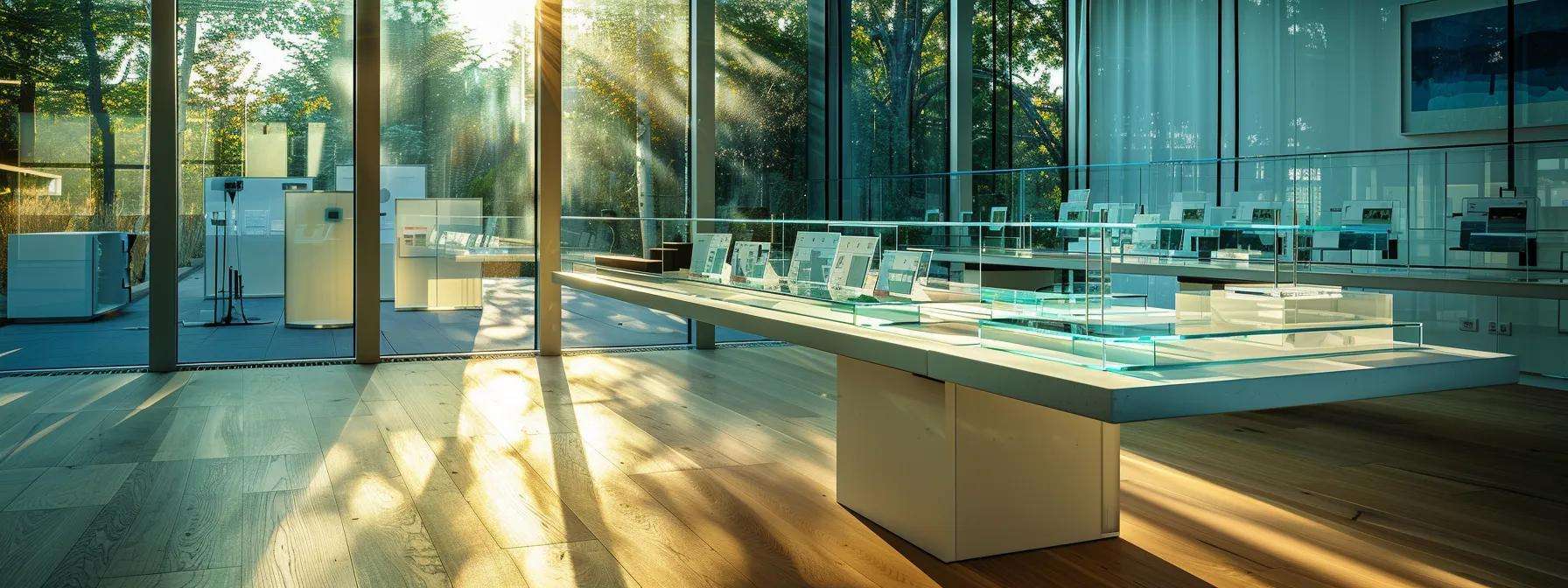
What Factors Should New Jersey Homeowners Consider When Selecting UV-Blocking Windows?
Key factors include assessing your home’s energy efficiency challenges and sun exposure, particularly in rooms with large south-facing windows. Look for features like a high Energy Star rating, Low-E coatings, and double or triple-pane configurations to maximize insulation.
Durability is also crucial in New Jersey’s varied climate. Consider frame materials—vinyl, fiberglass, or wood—and choose those that resist moisture, warping, and fading. A robust warranty (20–30 years) from manufacturers further indicates product reliability. Finally, balance aesthetics with technical performance by selecting finishes and styles that complement your home’s design.
How Does Professional Installation Impact UV-Blocking Window Performance?
Professional installation is essential to fully realize the benefits of UV-blocking windows. Certified installers ensure proper sealing, alignment, and integration with your home’s insulation, minimizing air leakage and condensation risks. These practices not only maximize energy savings but also extend the window’s lifespan and performance. Quality installation is often backed by warranties that protect both the product and the installation work.
What Warranty and Customer Service Should You Expect From Window Replacement Companies?
A comprehensive warranty covering both the glass and installation—often lasting 20 to 30 years—is a key indicator of quality. Excellent customer service includes clear communication, detailed estimates, and ongoing support after installation. At CKG Contractors, we emphasize transparency and client guidance from the initial consultation through post-installation follow-up, ensuring that your investment remains protected and performs optimally over time.
How Does UV-Blocking Glass Help Reduce Cooling Costs During New Jersey Summers?
One of the most tangible benefits of UV-blocking glass is a marked reduction in cooling costs. During New Jersey’s hottest days, these windows minimize solar heat gain, which in turn reduces the workload on your air conditioning system and leads to substantial energy savings.
What Is the Relationship Between UV Protection and Lower Energy Bills?
UV-blocking glass reflects and absorbs a significant portion of the sun’s radiant energy, reducing the cooling load on your HVAC system. Studies show that homes with such technology can reduce cooling energy use by 20% or more. This decrease results in lower electrical consumption and more stable indoor temperatures, contributing to long-term financial savings and increased property value.
How Can UV-Blocking Windows Improve Indoor Comfort in Hot Weather?
By regulating the entry of heat and harmful UV rays, UV-blocking windows help maintain a cooler and more stable indoor environment. This enhances overall comfort, improves air quality, and reduces glare—benefits that are especially valuable in spaces like home offices and living areas. Reduced thermal stress on cooling systems also means fewer abrupt temperature fluctuations, further contributing to a pleasant indoor climate.
Are There Additional Energy-Saving Features to Combine With UV-Blocking Glass?
Yes, additional features such as smart window films that adjust tint based on sunlight intensity, high-quality insulation, effective weatherstripping, and low-conductivity frames (like fiberglass or insulated vinyl) can further enhance energy efficiency. When integrated into a comprehensive home improvement plan, these features work in synergy to lower energy bills and boost indoor comfort.
What Are Common Questions About UV-Blocking Windows in New Jersey?
Homeowners frequently ask about lifespan, maintenance, and cost-effectiveness when considering UV-blocking windows. In New Jersey’s challenging climate, understanding these practical aspects is crucial before committing to a major home improvement project.
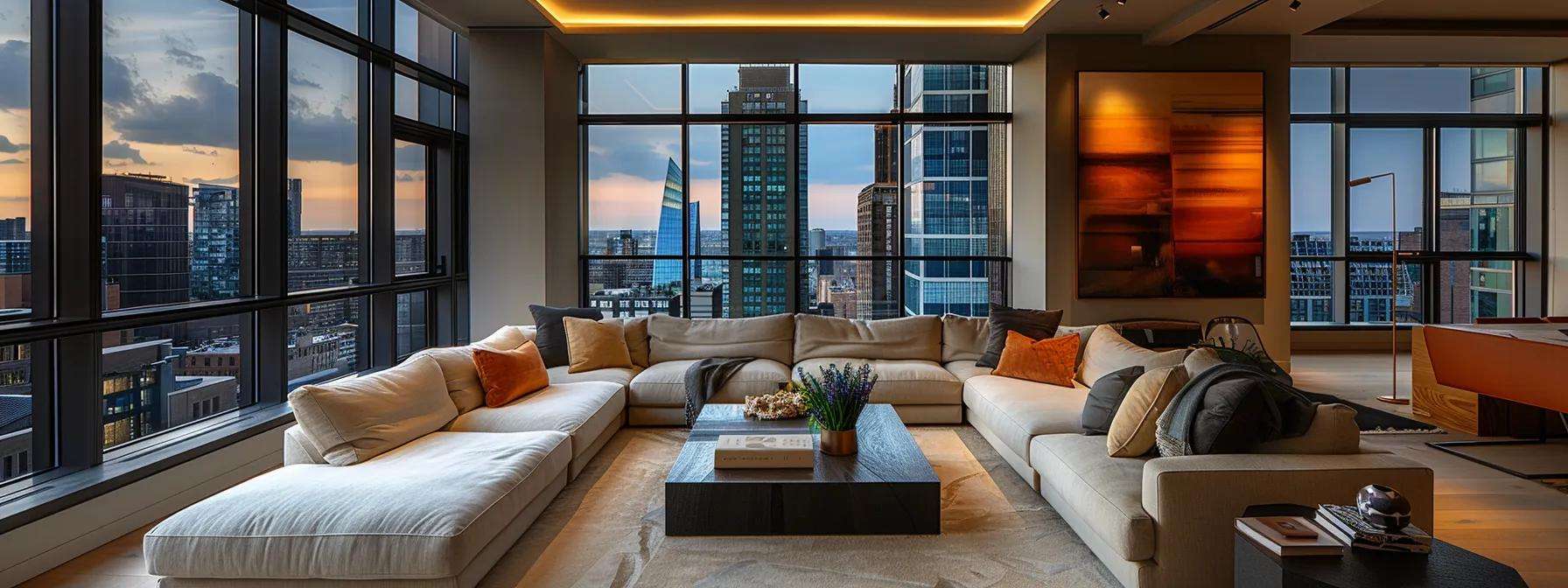
How Long Does UV-Blocking Glass Last in New Jersey’s Climate?
UV-blocking glass is designed for durability, with many products engineered to last 20 to 30 years or more. The quality of the glass and frame, along with proper maintenance through periodic cleaning and inspections, helps preserve the window’s energy-saving benefits and UV protection despite seasonal extremes.
Can UV-Blocking Windows Protect Furniture and Flooring From Sun Damage?
Yes, UV-blocking windows significantly reduce the risk of sun damage by filtering out up to 99% of harmful ultraviolet rays. This protection helps prevent fading and deterioration of furniture, flooring, artwork, and fabrics, thereby preserving your home’s interior aesthetics and value.
Is Window Replacement With UV-Blocking Glass Cost-Effective in the Long Run?
While the upfront cost of UV-blocking windows may be higher, the long-term energy savings, reduced need for frequent repairs, and enhanced market value make them a cost-effective investment. Homeowners often see a return on their investment through lower cooling bills and improved overall home performance.
Where Can You Find Reliable Window Replacement Services Specializing in UV-Blocking Glass in New Jersey?
Trusted window replacement services combine high-quality products with professional installation for optimal performance of UV-blocking glass. In New Jersey, companies like Jersey Shore Windows offer comprehensive services—from initial consultation and free in-home evaluations to complete installation and follow-up maintenance—all backed by strong local reputations and extensive warranties.
What Makes Jersey Shore Windows a Trusted UV-Blocking Window Installer?
Jersey Shore Windows has earned its reputation through years of dedicated service in New Jersey. Their use of state-of-the-art technology, high-quality materials, and precise installation practices ensures energy-efficient and durable window replacements. Backed by robust warranties and positive local reviews, they are known for blending quality with excellent customer service.
How to Verify Credentials and Reviews of New Jersey Window Replacement Companies?
It is important to research potential window replacement companies by checking online reviews on platforms like Google, Yelp, and Angie’s List. Asking for references and verifying certifications such as NFRC and Energy Star can also help ensure you choose a company with proven reliability, quality products, and solid after-sales support.
What Are the Steps to Schedule a UV-Blocking Window Replacement Consultation?
Begin by identifying reputable local companies with strong credentials and customer feedback. Contact them via online forms or by phone to request a free in-home evaluation. During the consultation, a professional will assess your current windows, measure openings, and discuss your energy, aesthetic, and budget needs. Following this, you will receive a detailed proposal outlining recommended products, installation timeline, and costs. Once agreed upon, scheduling is finalized, ensuring a smooth and informed replacement process.
How to Maintain and Care for UV-Blocking Windows to Maximize Summer Heat Protection?
Proper maintenance is key to ensuring your UV-blocking windows continue to perform optimally. Regular cleaning, periodic inspections, and timely servicing will extend their lifespan and preserve their energy-saving benefits.
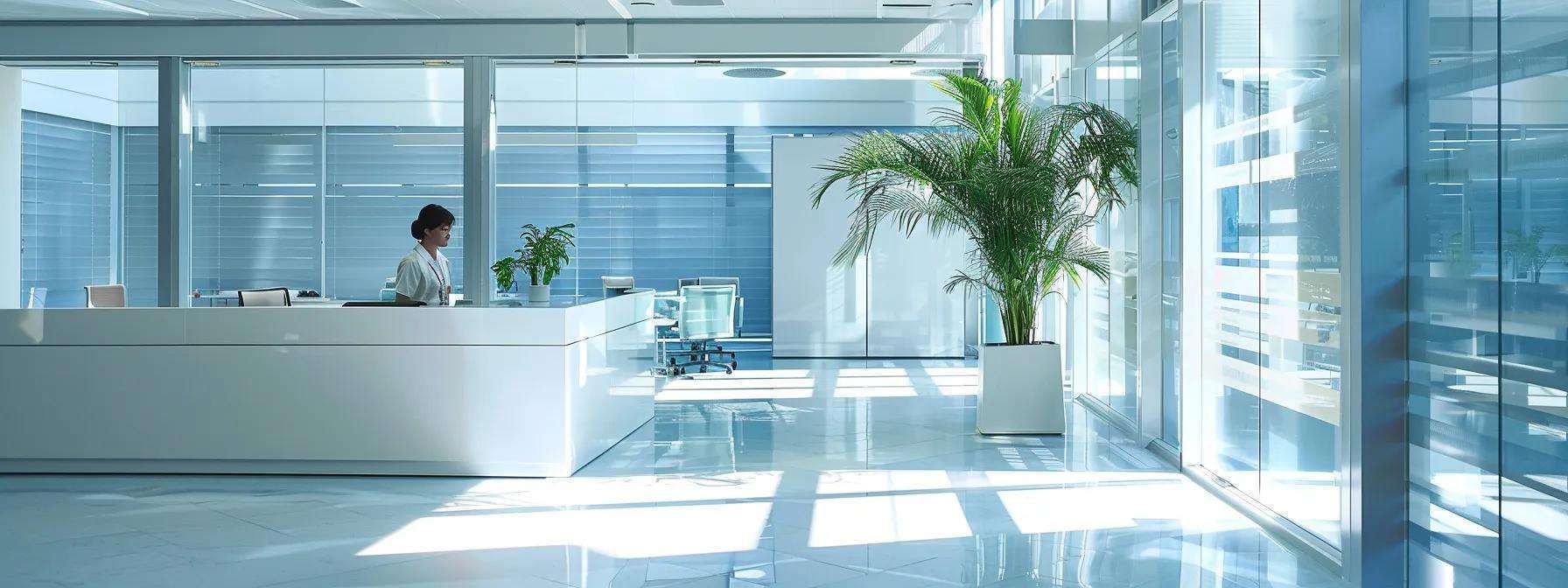
What Are Best Practices for Cleaning UV-Blocking Glass?
Use a soft, non-abrasive cloth or microfiber towel with a mild, ammonia-free glass cleaner to protect the specialized UV-blocking coatings. Clean the windows when they are cool—preferably during early morning or late afternoon—to avoid streaking from rapid drying. Routine cleaning (at least quarterly) removes dust, pollen, and debris, ensuring optimal light transmission and continued protection.
How Often Should UV-Blocking Windows Be Inspected or Serviced?
It is recommended that UV-blocking windows be inspected annually by a professional contractor. Regular inspections can catch early signs of seal degradation, condensation, or frame damage, allowing for timely repairs that maintain energy efficiency and protective benefits.
What Signs Indicate It’s Time to Replace Your UV-Blocking Windows?
Common signs include visible cracks or chips, persistent condensation between panes, difficulty in operating the windows, or noticeable drafts and water leakage. An increase in cooling costs or fading of interior furnishings may also indicate that the windows’ insulation and UV protection have degraded, suggesting replacement could be more cost-effective in the long run.
Frequently Asked Questions
Q: How do UV-blocking windows differ from standard windows in terms of energy efficiency? A: UV-blocking windows use special coatings, such as Low-E technology, that reflect and absorb harmful UV rays. This significantly reduces heat gain and lowers cooling costs while maintaining stable indoor temperatures and reducing the workload on HVAC systems.
Q: What maintenance routines are recommended to keep UV-blocking windows functioning optimally? A: Regular cleaning with a mild glass cleaner and non-abrasive cloth, along with annual professional inspections, is recommended to maintain the specialized coatings and ensure maximum energy efficiency.
Q: Can UV-blocking windows really protect my home’s interior from sun damage? A: Yes, they are designed to block up to 99% of harmful UV rays, which helps prevent fading and deterioration of furniture, flooring, artwork, and fabrics.
Q: Are the energy savings from UV-blocking windows substantial enough to justify their cost? A: Absolutely. Although the initial investment may be higher, the long-term reduction in energy bills, coupled with lower maintenance and increased home value, makes them a cost-effective option.
Q: What factors should I consider when choosing a window replacement company in New Jersey? A: Consider the company’s reputation, customer reviews, industry certifications, warranty offers, and quality of both the product and installation. Experience with local climate conditions is also important.
Q: Does the installation process affect the performance of UV-blocking windows? A: Yes, proper installation is essential. Professional installation ensures that the windows are properly sealed, aligned, and integrated with your home’s insulation system, which directly affects energy efficiency and UV protection.
Q: How do I know if it’s time to upgrade my current windows to UV-blocking options? A: Signs include increased cooling costs, noticeable drafts, condensation between panes, visible damage, and fading furnishings. If your current windows no longer provide adequate comfort or efficiency, consulting a professional can determine if upgrading is the best option.
